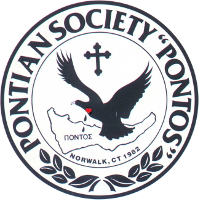 These villages are located east of Kalopotamos, in the region of Rizaio (Rizouda). Lazou is at a distance of one hour, while Klito one hour above Lazou, but because these villages are closer to Ofi (Ofiouda), they are almost whole together with the Greek villages of Ofi.
These villages are located east of Kalopotamos, in the region of Rizaio (Rizouda). Lazou is at a distance of one hour, while Klito one hour above Lazou, but because these villages are closer to Ofi (Ofiouda), they are almost whole together with the Greek villages of Ofi.
 Nowadays, Klito was in decline because its inhabitants were scattered in various places while the last remaining families settled in Lazou and thus the village was deserted and its temple, which was valued in the Assumption of the Most Holy Theotokos, was preserved intact in the wilderness. The oral tradition tells of a high priest who once toured the area and did not receive the prescribed hospitality and care from that parish, so he cursed the area, to be deserted, as it happened.
Nowadays, Klito was in decline because its inhabitants were scattered in various places while the last remaining families settled in Lazou and thus the village was deserted and its temple, which was valued in the Assumption of the Most Holy Theotokos, was preserved intact in the wilderness. The oral tradition tells of a high priest who once toured the area and did not receive the prescribed hospitality and care from that parish, so he cursed the area, to be deserted, as it happened.
This village is the homeland of the hegemonic family of Riza who was financed by chief metallurgists of Chaldia with great power, some of whom even served in Constantinople and Wallachia and became rulers of Wallachia. In recent years, Lazou, consisting of thirty families, maintained a temple and a school. In the history of the Holy Monastery of Soumela it is mentioned that these two villages belonged to the exarchate of the Monastery of Soumela but it is unknown why in the history of the same monastery Kalopotamos is referred to as Kakos Potamos and euphemistically Kalos Potamos, even referred to as Tsalimopotamos. This is questionable as Kalopotamos is never mentioned by the Ophundians as Tsalomopotamos. This cannot be explained with real facts as the waters of the river were always clear. From the rivers of Ofiundia (Ofis) the river Issos of Surmina could be called Tsalimopotamos as its waters were always cloudy with muddy color so the Turks called it Karadere without distinguishing between black and red. There was a Black River in Ofiundia (Ofi), but it was smaller and lesser known, between Evgian (Agios Eugenios) and Machnos which was actually black and not even mentioned by the geographers.
